Halo 5: How Breakout mode makes a very un-Halo game feel right again
Have you heard of the Ship of Theseus? You probably have, it’s a bit like the Sugababes*. The ship was both a floaty wooden thing full of Greeks and, more relevantly, the subject of a famous thought experiment. According to the great historian Plutarch, after Theseus had part-exchanged his ship for a Nissan Micra, it was carefully preserved for many decades, its decaying planks and oars intermittently replaced until nothing of the original ship remained.
As they often did before the invention of Xbox Live, the Greeks began philosophising: is this really still the ship of Theseus, given that no part of it was known to Theseus himself? The answer was both yes and no, and the paradox so pleasing that it’s been revived through the ages: as George Washington’s axe, with changing head and handle, as Trigger’s broom in Only Fools And Horses and, perhaps most profoundly of all, as the Sugababes.
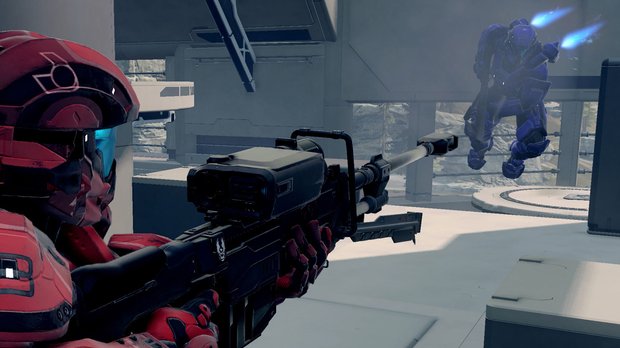
The point being that the issue of when a thing stops being itself can be a tricky one, even for ancient philosophers and members of the record-buying public. And it’s with this philosophical uncertainty in mind that we should approach Halo 5: Guardians, a game which is both obviously itself - it says it right there on the front: Halo - and, equally obviously, not the self it once was. The Halo 5 beta, entering its last days at the time of writing, has revealed the game to be both a heavily-strapped imposter and blockbuster heir apparent.
This doesn’t start with Halo 5. The series has been drifting away from itself for a while now. Actually, not drifting but sprinting, as sprinting itself is one of the wedges driven between old Halo and the new. Bungie’s Reach - the game with which the studio responsible for creating Halo said farewell to the series - was the first obvious point of departure, with special powers alongside weapons adding a layer of disruption, bursts of speed and vertical movement, to a very set formula. But it was under the stewardship of 343 Industries, the team built to be the new custodians of Halo, that things really began to change.
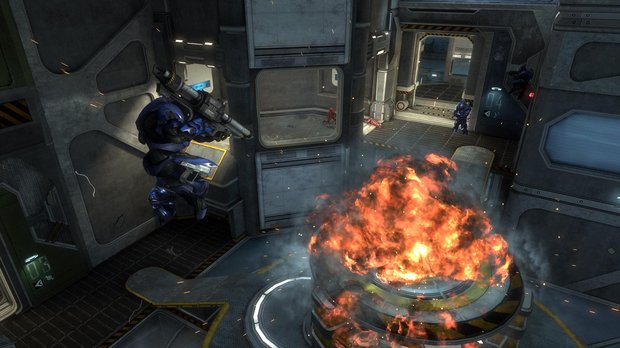
Let’s dispense with the notion that change is necessarily a bad thing, a thing to be resisted. As the anxious spirits of ships, axes and manufactured pop groups know only too well, time refuses to stand still, and the suggestion that Halo might have existed forever as the steady game of precision and balance we saw in Halo 2 and 3 is a madness only to be whispered at secret LAN parties packed with trusted souls. Expectations change, demands shift, trends are set. Yes, this is Call Of Duty’s fault - it was snake and apple in Halo’s garden of Eden, showing us a world of fast death and faster respawns, of loadouts and grind. And we (I mean “You” here, so categorically “You”) loved it.
Halo 4 could not stand still. It needed to sprint. The trick, the hope, is to capture something essential about the thing (the curve of the ship, the stroke of the axe) and preserve it in the new version of itself. This was easier to pull off in Halo 4’s campaign, where voices and cutscenes smile reassuringly about continuity, but the multiplayer told a different story. Everything from the voice of Halo’s distinctive arena announcer onwards has been raised an octave. Everything is faster and less substantial. Guns are louder but with less force, movement all buzzing and rush. It was Halo for bees. I love bees. But bees don’t play Halo.
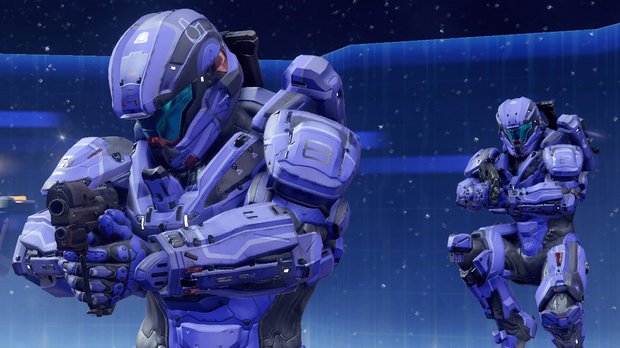
Here comes one of those forks in the road. It’s unusual that we get a chance to see things as they might have been, the laws of relativity being dead against this sort of business. But post-Halo 4, two potential futures have manifested themselves. Often while playing Halo 4 - frustrated, sprinting, and trying to mitigate on behalf of 343 and the impossible job the studio had been given - a shrugging platitude would come to mind: “Oh well. Who knows what Halo would have become if it had stayed with Bungie?” It might have been just as bad, I reasoned, or perhaps even worse. We just have no way of knowing.
Weekly digests, tales from the communities you love, and more
Except we do, and it’s called Destiny. Destiny pulls off that trick - it feels like a Bungie shooter (that is to say, Halo) while also accounting for and pushing forward all the things a shooter can and needs to be now. There are powers. There is sprinting. There are three different classes and a huge spread of loadouts and character builds. And yet Destiny retains the uniformity and clarity of those old Halos. It’s fast but not frantic. It’s about gravity-defying manoeuvrability, but it feels grounded. It’s like Halo’s combat, evolved, an accomplishment that makes you sit up and think “Oh, that Bungie. They’re good, aren’t they?”
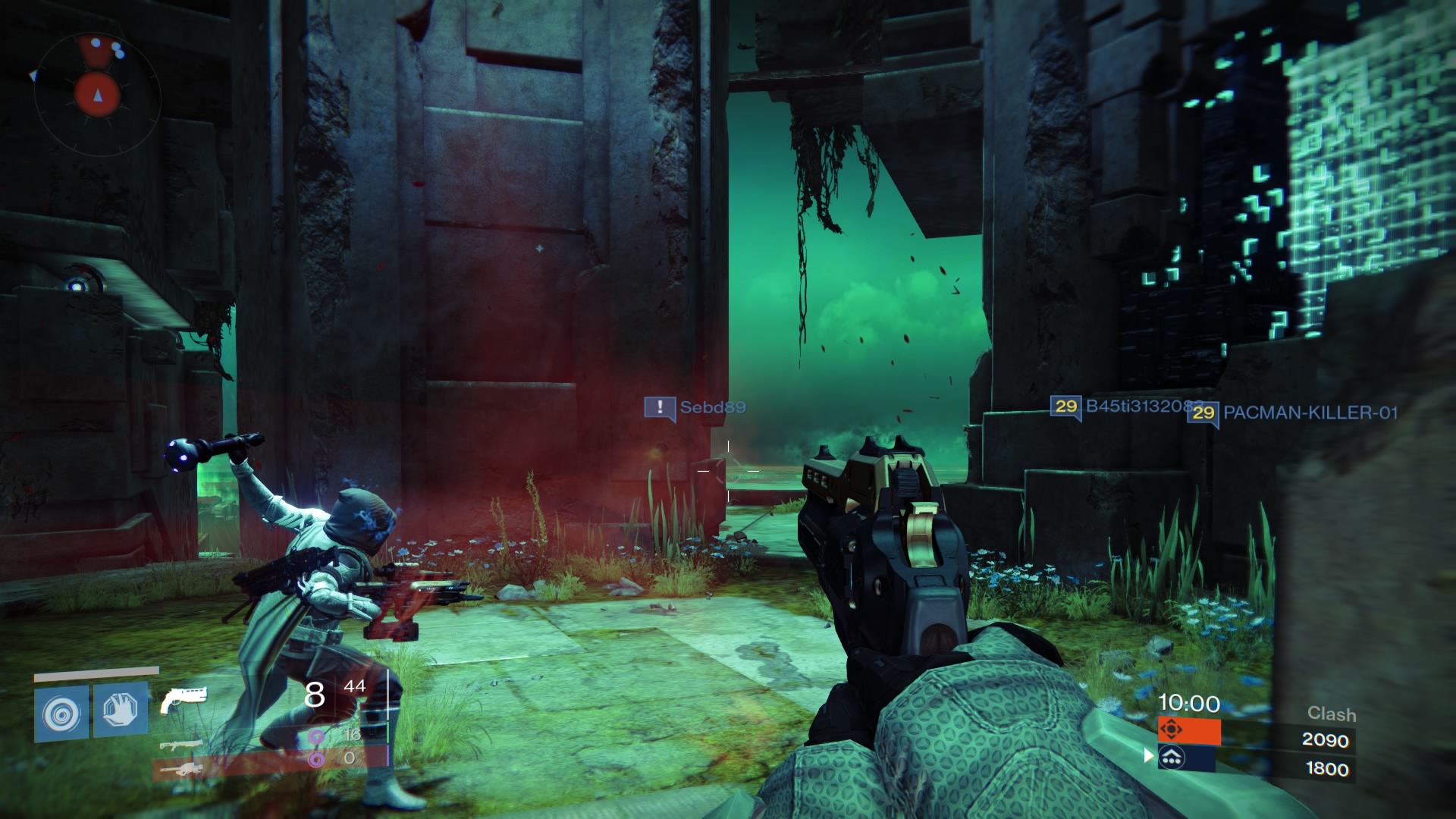
It also puts Halo 5, the other path off that fork, in an unenviable position. The Halo 5 beta gave the world its first substantial look at 343’s new and officially-Halo Halo game just a few months after Destiny’s arrival, and at a glance it seemed a stranger to itself. 343 has doubled-down on the things that made Halo 4 less like Halo: now it features infinite sprinting, shoulder charges, ground slams, ledge-lip clambering, thruster-pack sidestepping, aim-down-sights. It also features an end-of-match animation of Spartans high-fiving each other and swaggering about like a peacock lacrosse team, that’s inexplicably bad and the only thing that makes me actually cross with the game.
(Actually I’m really cross. It’s as though they don’t have anyone on the team whose job it is to keep an eye on not shooting a rocket with testicles through the stoic hero character the series has spent 12 years establishing - except, worse, they definitely do, but that person is helpless to stop mistakes like these from being made by the petulant wheel of layered corporate-creative decision making. I bet nobody actually wanted this. I bet it just happened through force of communal negligence, compromise and helplessness. Like a fucking ouija board of making games worse.)
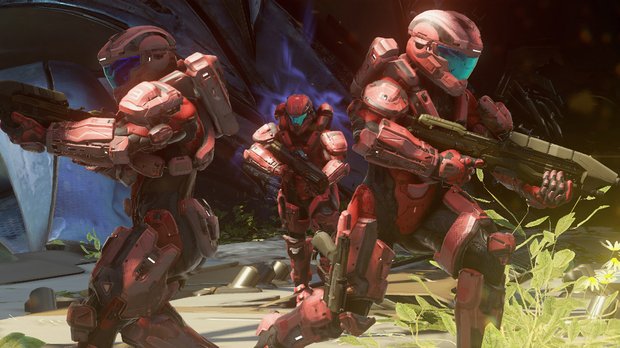
Apart from the end-game brodown, I found that I liked this game. It was a bit like Titanfall. But it’s weird, I thought, that it’s called Halo.
And then the beta was updated and Breakout happened.
While playing Slayer in the beta and thinking about Titanfall, I had said to myself, probably out loud because I get lonely, “This is good. But really, what’s here that I will ever choose to play instead of Destiny?” Breakout is the answer to this question, an intense team mode where players have no shields and games are decided on a one-life, last-man-standing basis. Rounds are quick, and the first team to race to five wins takes the match. It’s tense, brutal, and rewards teamwork and precision. It is, in other words, the most Halo-like thing I’ve played in a Halo game since Halo 3 (I am blaming Plutarch for the high incidence of sentences like that in this piece).
It is thrilling. It delivers a sense of on-the-spot paralysis I remember from days of semi-seriously ranking up in Halo 2 - those very best games where our dedicated team of four worked closely together against another four, who knew the level layout and weapon spots as well as we did. It delivers that sense of stalemate punctuated by the occasional desperate skirmish. It gets right to the heart of what made Halo so revelatory even while the core of Halo 5 jettisons so many of the principles of play that seemed to embody the series.
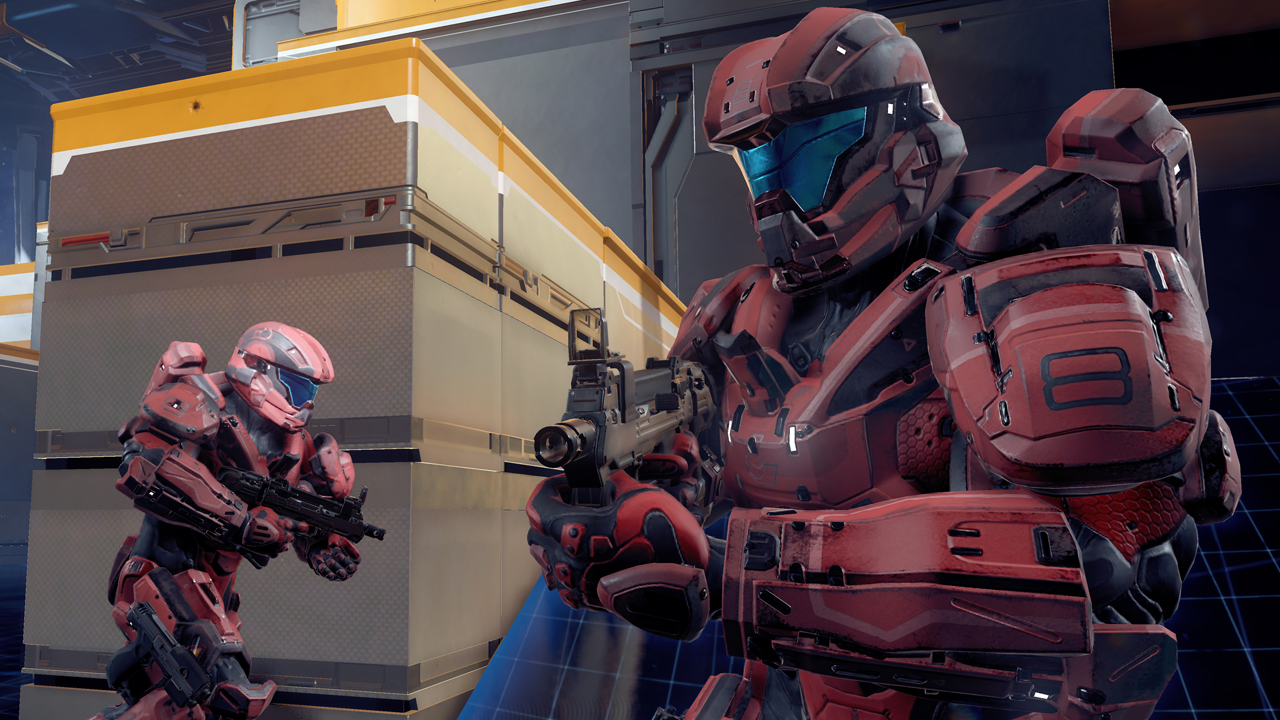
And this is where we return to the Sugababes Theseus, and how a thing can be itself and not itself at the same time. Halo 5 is a different ship, with all the old timber replaced by loud, new timber that I don’t like as much. But at the same time it pulls off that trick - it has the swing, the curve, the feel of Halo, condensed into short, moreish bursts, and though Destiny shows us what might have been, this is also enough.
*PS I should explain that the Sugababes was a pop group consisting of three female performers which changed its line-up gradually over many years until eventually the group, still called the Sugababes, contained no original members. In fact the original members reformed as a separate group but couldn’t call themselves the Sugababes, something Plutarch would probably have something to say about.


